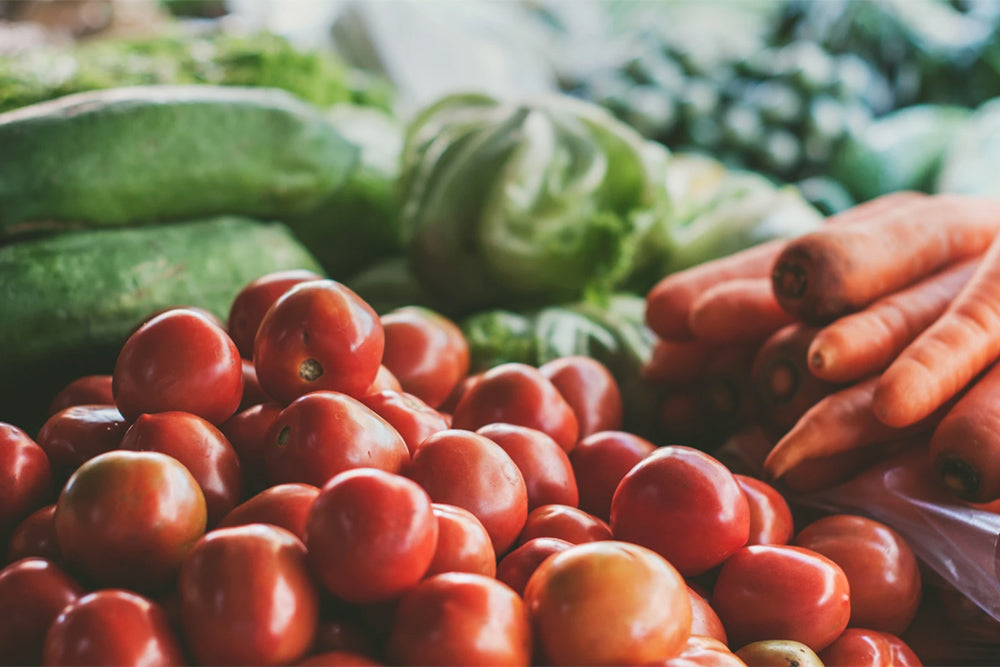Plant-Based Personal Nutrition

Whether you are vegan, vegetarian or flexitarian you realize the importance of plants to your personal health and health of the planet.

Curious about our ingredients? Wondering why they're in there and how we chose them? Believe us that our dietitians, food scientists and very picky founders have noodled with these questions time and time again.

Growing Naturals uses naturally gluten-free ingredients and strives to achieve lab-verified, gluten-free products. Learn more about our gluten testing methods, average test results and more.

The idea that vegans or vegetarians and gas are synonymous is a myth that’s easily debunked when you see what causes gas and how you can prevent it in excess when you start eating a plant-based diet.

Even though there’s a huge uptick in interest in vegan diets, some men are reticent to take the plant-based plunge. Why? For fear it may make them less manly by sapping their testosterone. There are all sorts of ideas and myths surrounding plant-based diets and low testosterone, but can veganism really affect your testosterone (T) levels? Let’s find out.

There are many known health-related benefits to a plant based diet ranging from longer lives to happier moods. But not all plant-based diets are created equal. What makes a beneficial plant-based diet and what does the research say specifically about their relation to heart health?

Not only do plant proteins provide our bodies with essential amino acids, but they’re full of health-boosting vitamins, minerals, and antioxidants—all of which have shown to be champions in fighting health conditions that have become all too prevalent. Here are 7 health concerns that plant proteins can help fight.

What exactly is phytic acid? And what is the phytic acid content of rice and pea protein? Here are the pros and cons of phytic acid, how to reduce them in foods and why most people shouldn't worry about them.

Did you know that those on plant-based diets require slightly more protein than their meat-eating peers? Read on to find out what may be stopping you from meeting your protein goal on a plant-based diet.

Are tomatoes and potatoes inflammatory? Contrary to misconception tomatoes are actually anti-inflammatory according to a new Dietary Inflammatory Index or DII, an evidence-based tool showing concrete evidence of nutrients and foods which actually demonstrate a mitigating effect on markers of inflammation.

There are five common omissions that over time, can predispose vegetarians to important health issues, ranging from diabetes to infertility. Here is a checklist to be sure your own vegetarian lifestyle is steering you in the right direction.

As if the health benefits weren’t enough, pea protein tastes great, is highly versatile, and can even help you maintain a healthy weight. Take a look at 7 of the best reasons you should try pea protein.

Meatless Monday is a worldwide movement designed to help people and the environment by cutting out meat once a week. With so many people—and restaurants—taking part, it’s easier than ever to go meatless. Here are some helpful tips.

Studies continue to show that balanced plant-based diets—or those that include plenty of plant-based foods—bring about a life-changing host of health benefits. And believe it or not, going vegan can be completely painless if you follow these tips.

Check out this quick informative guide for the best egg-less egg replacements to use in any baking recipe especially those powered by Growing Naturals.

The quality of a plant-based diet is very important and a good determinant of the resulting health benefits. Here are some of the top nutrients you should watch out for when going vegan.

Grains can actually be the good guys, if you choose the right ones.

What is the difference between heme and non-heme iron? What is iron and what does iron do in the body? Learn about iron requirements, deficiencies, and why plant-based, non-heme iron might be better for you.

Even with the increased awareness, there is still some confusion about gluten, gluten-free diets, and celiac. In honor of Celiac Awareness Month, we’re dispelling some of the most common myths surrounding gluten and celiac disease.




